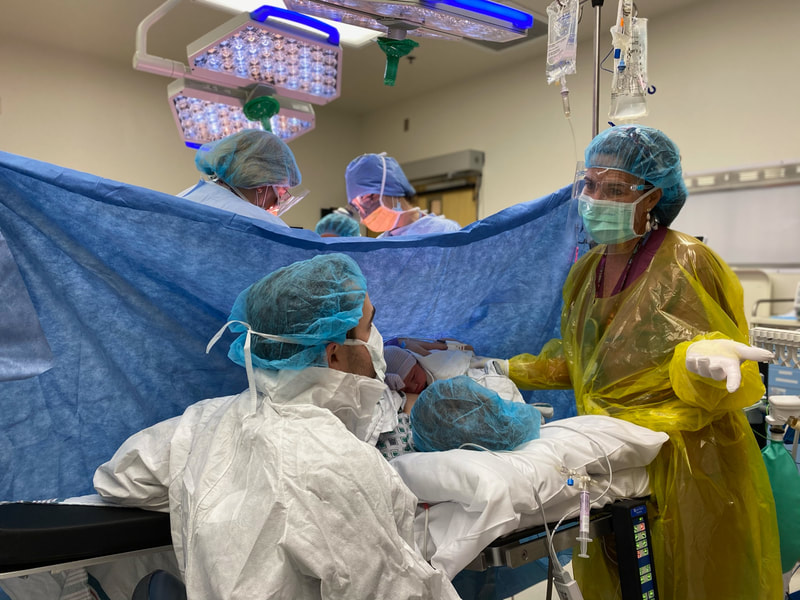Understanding C-Sections
A C-section is a surgical procedure where a baby is delivered through an incision made in the mother's abdomen and uterus. Although it is typically done when a vaginal birth poses risks to the mother or baby, it can be an unexpected and emotionally charged experience. A C-section’s physical and emotional aspects can be overwhelming, making it essential for the birthing person to have support throughout the process. A C-section can be planned (because the baby is breech) or unplanned. Reasons for an unplanned C-section could for example be: stalling of labor, the baby is in distress, or because of a placenta abruption. It should be noted however that research indicates that women who receive continuous doula support are more likely to have spontaneous births (so a lower chance of an unplanned C-section). So what are the benefits of having a having a doula when birth is giving through a C-section? Emotional Support A birth doula’s most significant role during a C-section is providing emotional support. The emotional impact of a C-section can be intense, as it may deviate from the envisioned birth plan. A doula can help by offering reassurance, empathy, and a calming presence. They can assist in easing the anxiety and fear that may accompany a surgical birth.
Informational Support
Support for Partners While doulas primarily focus on supporting the birthing person, their presence also benefits partners. Partners often experience their own emotions and concerns during a C-section and may find comfort in having a doula as a guide and source of support.
Unfortunately, in most hospitals, doulas are not allowed to join their clients in the operating room, but they can still provide valuable support to the client and their partner before and after the C-section. So often, the client goes to the operating room, and the partner comes 10 minutes later. The doula can help ease the partner’s nerves and remind them to take pictures in the operating room, talk to their baby, and ensure they can fill in the missing gaps for their wife later. Besides that, if the baby needs to go to the NICU, the partner should go with the baby and the medical team to the NICU, and the doula can be with her client, so she is not alone. If the client, for example, has to return to the operating room because of a hemorrhage then the doula can be with the partner and the baby. The doula can also ensure that the partner will get information on how their partner/wife is doing. Conclusion In the realm of childbirth, a doula's role is not limited to natural births but extends to C-sections as well. A doula’s emotional, physical, and informational support during a C-section can significantly affect the birthing person's experience. They help reduce anxiety, offer physical comfort, and empower the birthing person to make informed decisions. Doulas also contribute to a more positive postpartum experience and support partners in their journey through the surgical birth process. Ultimately, a doula's presence before, during and after a C-section can transform what might initially seem like a clinical procedure into a deeply meaningful and supported birthing experience. Comments are closed.
|
AuthorAfter a career as ICU nurse and medical sales representative I followed my passion and became in 2018 a certified birth and postpartum Doula. |
Experience at:
|
CONTACT INFO:
PHONE:
(202) 279 1089 EMAIL:
|

